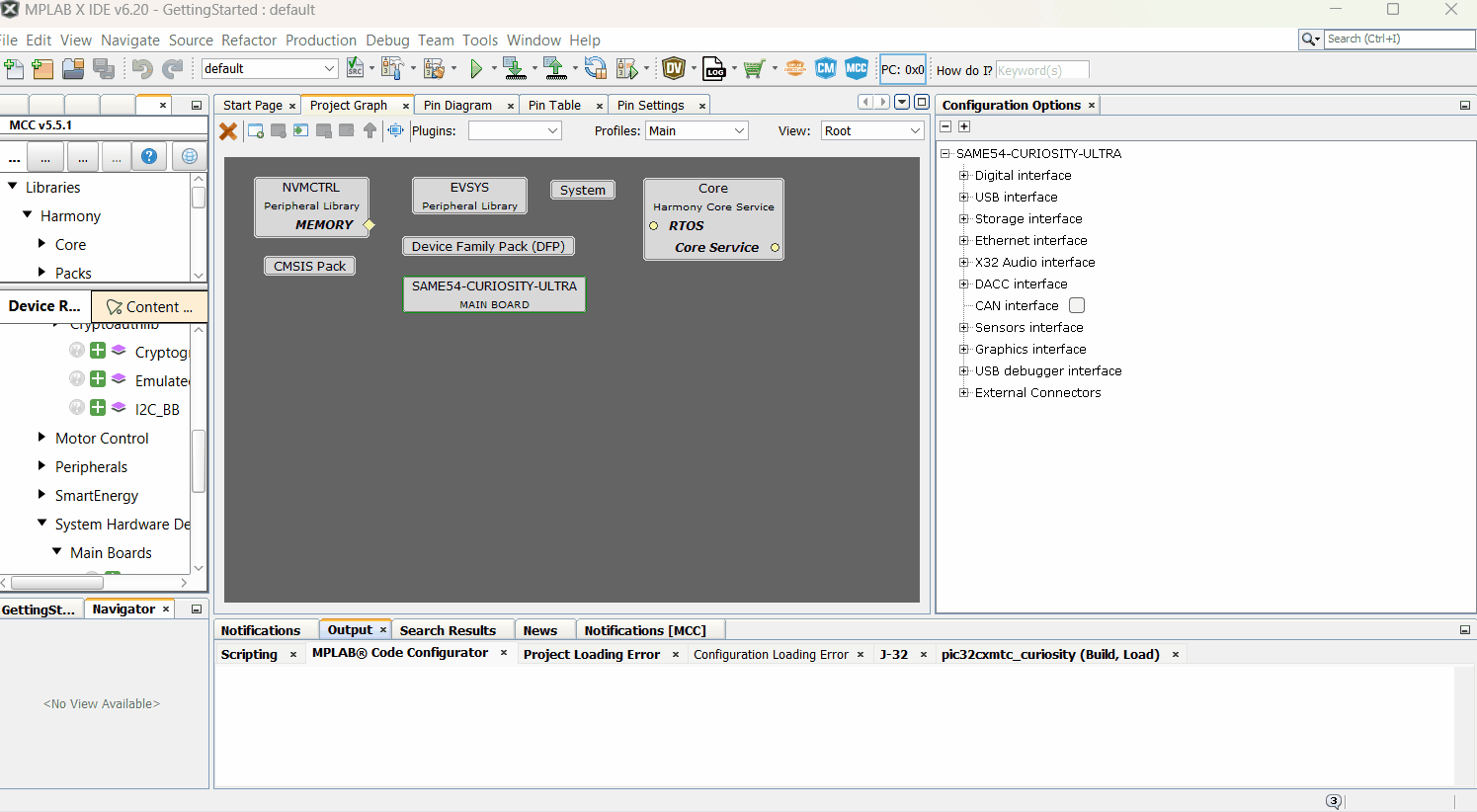2.3 Working with PLIBs and Drivers
By default each pin is controlled by the PIO peripheral as a general purpose I/O, and alternatively it can be assigned to one of the peripheral functions.
In cases where an alternate peripheral function is required, the Chip Support Package (CSP) module contains Peripheral Library (PLIB) components for all supported peripherals on all supported devices. PLIB instances are automatically added to the project in order to use them to directly access and control an instance of the associated peripheral using a simple C-language interface. Once added, their I/O initialization settings are automatically configured by SHD.
Advanced projects that require additional software capabilities will also rely on the MPLAB Harmony 3 core package (which then relies on the CSP). The Harmony 3 core package provides drivers and services that have advanced capabilities (like buffer queuing, peripheral sharing, or guaranteed portability) and a higher level of abstraction that provides hardware independence to client code.
SHD provides an automatic convenient configuration and dependency management GUI that makes driver and service I/O configuration easy.
This example of SHD configuration shows how some drivers and services are automatically added, configured and connected to the proper PLIBs.

